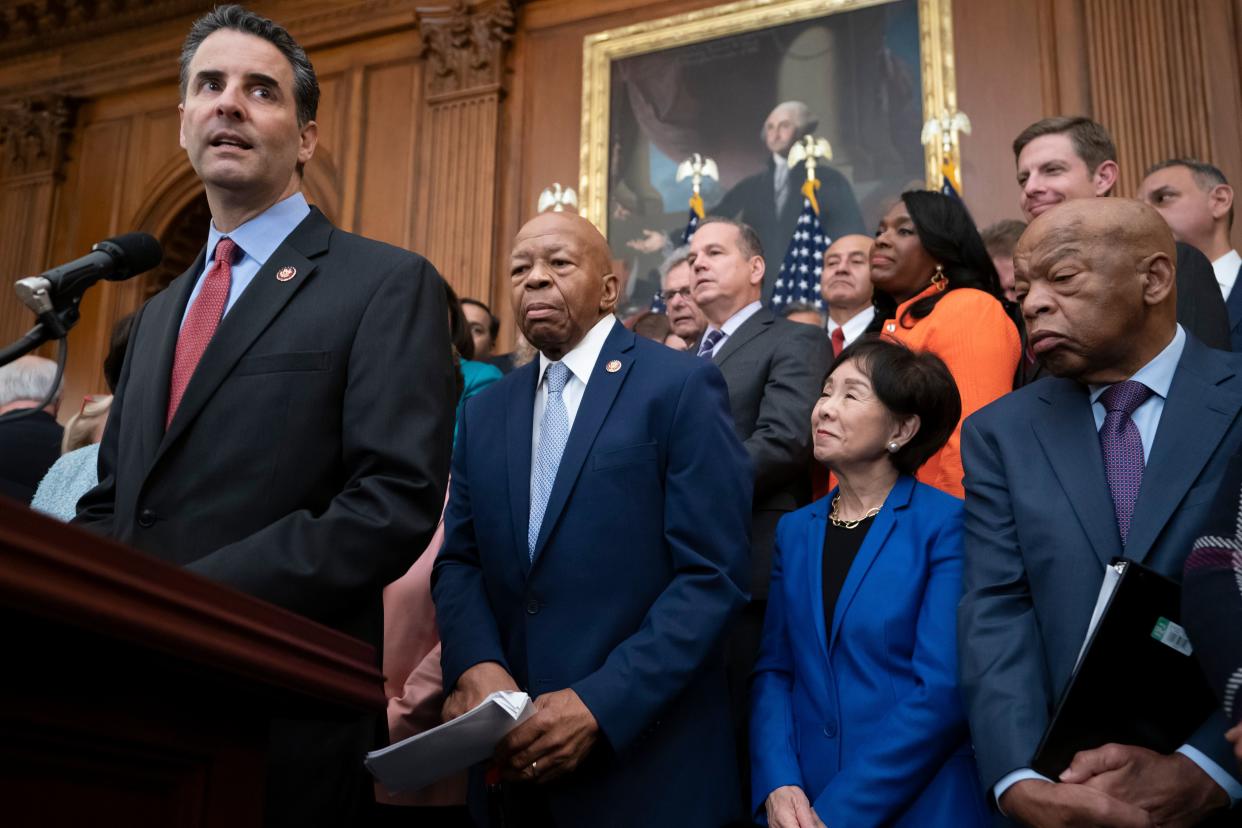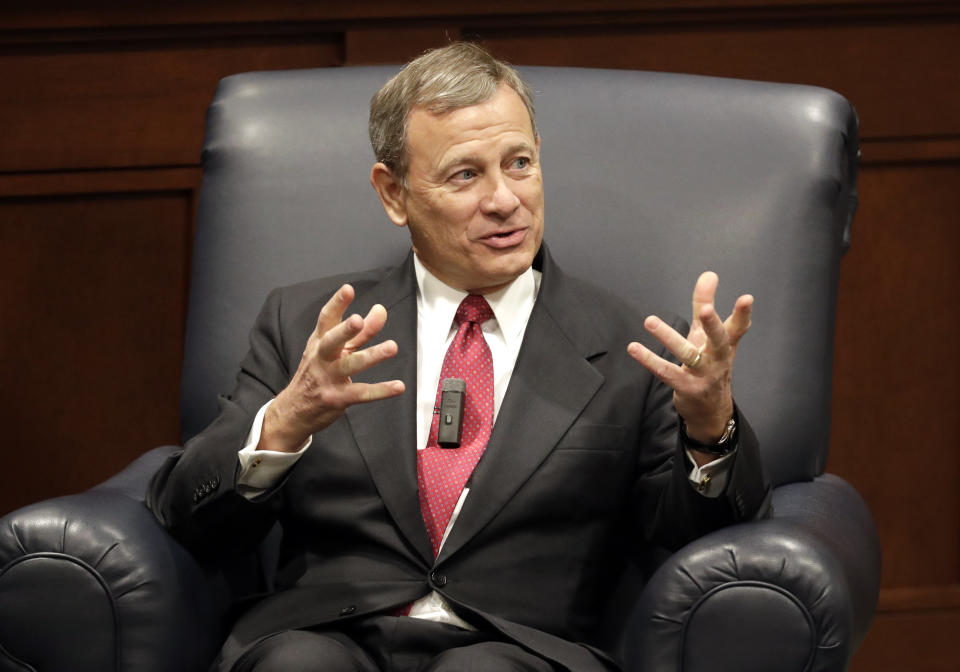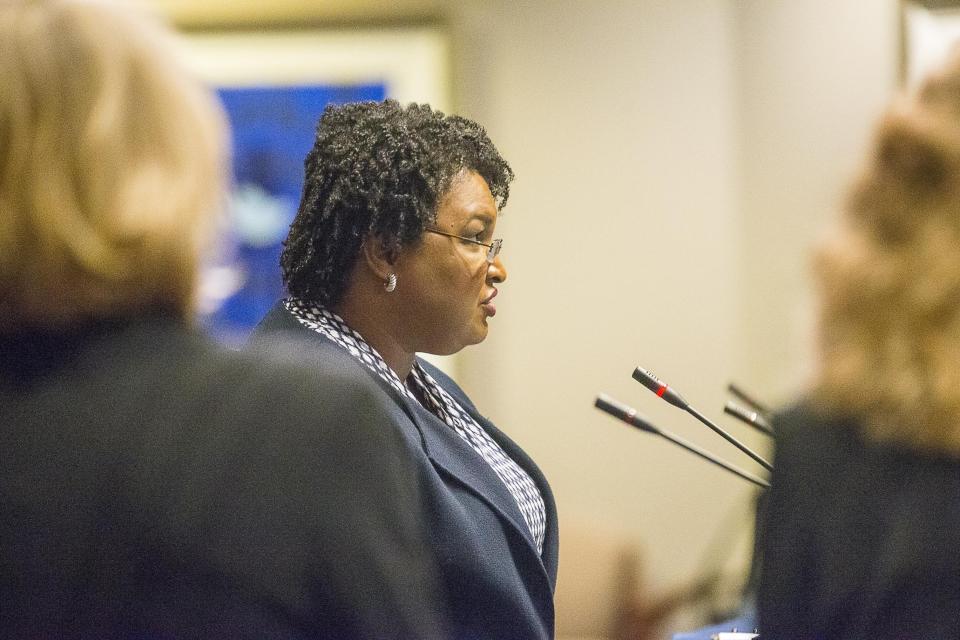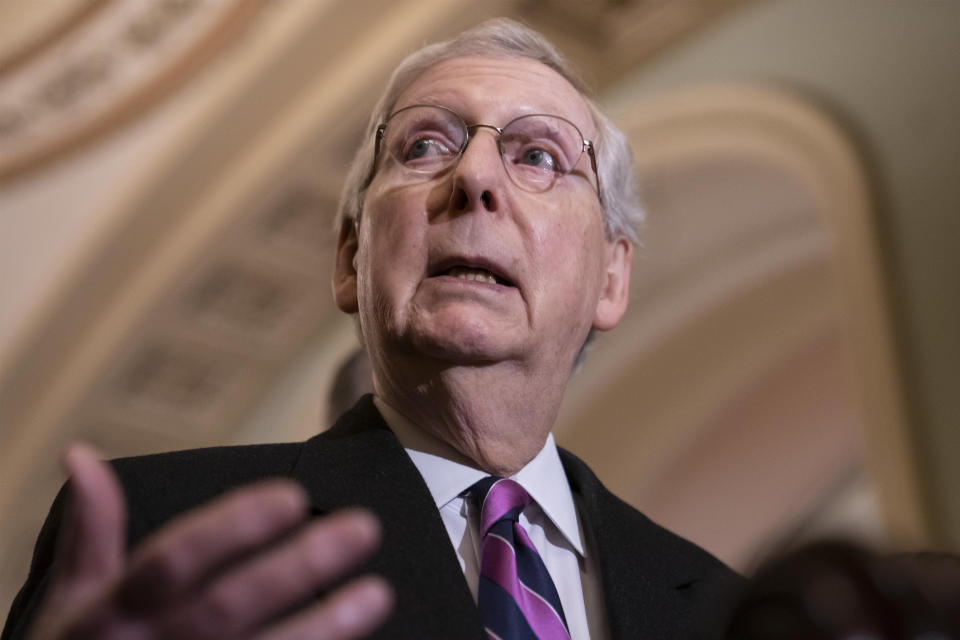Democrats push to make voting rights a 2020 issue

WASHINGTON — With an eye toward making the reinstatement of the 1965 Voting Rights Act an issue in the 2020 election, Democrats are pushing ambitious new legislation they hope will lay the groundwork for increased voter participation.
House Democrats plan to pass House Resolution 1 this week, a mammoth proposal with three main planks: campaign finance, ethics and voting rights. But even if the measure succeeds, the Republican-controlled Senate is not expected to take it up for a vote.
HR 1’s voting rights components — which aim to increase voter registration and access to the polls — have so far received more attention than its other provisions, but the details of the bill have less to do with reinstating the VRA than a subsequent bill, HR 4, which was introduced last week.
In its 2013 decision in Shelby County v. Holder, the U.S. Supreme Court weakened the Voting Rights Act, and HR 4 aims to lay the foundation for a new VRA standard that will withstand legal challenges once it becomes law.
“Getting the Voting Rights Act updated and strengthened again is key,” said Rep. John Sarbanes, D-Md., a key proponent of HR 4, which was introduced last week by Rep. Terri Sewell, D-Ala.
HR 4, the Voting Rights Advancement Act, will give the Democrats a vehicle to conduct field hearings and hear expert testimony over the next several months to amass what Sarbanes called a “strong, robust record” for why the VRA needs to be reinstated after Shelby.

The Shelby decision removed the requirement for state or local governments with a history of racial discrimination to seek permission from the Justice Department before making “all changes to state election law — however innocuous — until they have been pre-cleared by federal authorities in Washington, D.C.”
Chief Justice Roberts wrote in a 5-4 majority opinion that “things have changed dramatically” since the 1965 passage of the VRA, and that “problems remain in these States and others, but there is no denying that, due to the Voting Rights Act, our Nation has made great strides.” Nine states were covered by the VRA in 1965, and counties and townships in five other states came under the act in its subsequent renewals.
The court’s Shelby decision left open the possibility of renewal of what is known under the VRA as “pre-clearance” for state and local election changes, but said that Congress needed to approve new formulas to trigger the scrutiny of the federal government.
“Our country has changed, and while any racial discrimination in voting is too much, Congress must ensure that the legislation it passes to remedy that problem speaks to current conditions,” Roberts wrote.
Democrats argue that, in the wake of the court’s decision, Republicans moved quickly to erect election laws that made it harder to vote. These changes were usually made in the name of preventing voter fraud, but often had a disproportionate impact on minority voters and the poor.
“Since the Shelby decision, a lot of jurisdictions across the country seem to have snapped back to an earlier time where they’re putting in place these measures that make it harder to vote,” Sarbanes said.

Carol Anderson’s 2018 book “One Person, No Vote” documented the impact of election law changes in the 2016 election and pushed the idea that the decline in African-American participation in the Rust Belt states that decided the election was due to Republicans culling the voter rolls and erecting obstacles to voting. The Democrats 2016 presidential nominee, former Secretary of State Hillary Clinton, talked about these impacts this past weekend.
“I was the first person who ran for president without the protection of the Voting Rights Act, and I will tell you, it makes a really big difference,” Clinton said Sunday in Selma, Ala., at a commemoration of the 1965 Selma to Montgomery civil rights march.
In 2018, the Georgia gubernatorial contest between Republican Brian Kemp and Democrat Stacey Abrams crystallized concerns about voter suppression. Kemp, then Georgia’s secretary of state, oversaw the election he was running in, raising questions about a conflict of interest.
Kemp had a long record of making openly partisan statements of alarm about increases in Democratic voter registration numbers, and had removed millions of voters under the pretense of keeping them up to date.
Following her defeat, Abrams founded a group called Fair Fight Action and filed lawsuits that argue Kemp erected an “obstacle course” for voters.
While Republicans have often raised concerns about voter fraud in recent years, there have been no widespread instances of fraud that impacted an election until Republicans in North Carolina were caught trying to steal a congressional election in the state’s ninth district.

Ironically, the North Carolina case is now being used by Republicans to argue that measures that Democrats decry as suppressing the vote are in fact needed to prevent cheating.
“For years and years, every Republican who dared to call for commonsense safeguards for Americans' ballots was demonized by Democrats and their allies,” Senate Majority Leader Mitch McConnell said on the Senate floor last week. “We were hit with left-wing talking points insisting that voter fraud wasn't real.”
“Now that an incident of very real voter fraud has become national news and the Republican candidate seems — seems — to have benefited, these long-standing Democratic talking points have been really quiet,” McConnell said. “Haven't heard much lately from the Democrats about how fraud never happens.”
Sarbanes said that McConnell is conflating fraud by political operatives to change an election with fraud by voters at the polls. The latter, voter fraud, is the justification Republicans often use for stricter laws and rules, and that was not what happened in North Carolina, Sarbanes said.
The prospects for reinstating the VRA’s pre-clearance requirement before the 2020 election look slim, given that Republicans control the Senate and the White House. But Sarbanes said that the heightened awareness of this issue could make this a potent election-year issue in 2020.
“If McConnell doesn’t take up any of these important reforms, I think it’s fair to say to the public, ‘Look, you gave the Democrats the gavel in the House in 2018, and we’ve shown you that we’re committed to make these changes. If you’re not getting satisfaction on that on the Senate side, maybe you should give the gavel to a new set of leaders and a new party on the Senate side,” Sarbanes said. “Whether it results consequentially in a legislative achievement … or the energy it produces gets converted into electoral momentum that becomes part of the 2020 election narrative … remains to be seen.”
“But either way,” he said, “it will create momentum.”
_____
Read more from Yahoo News:



